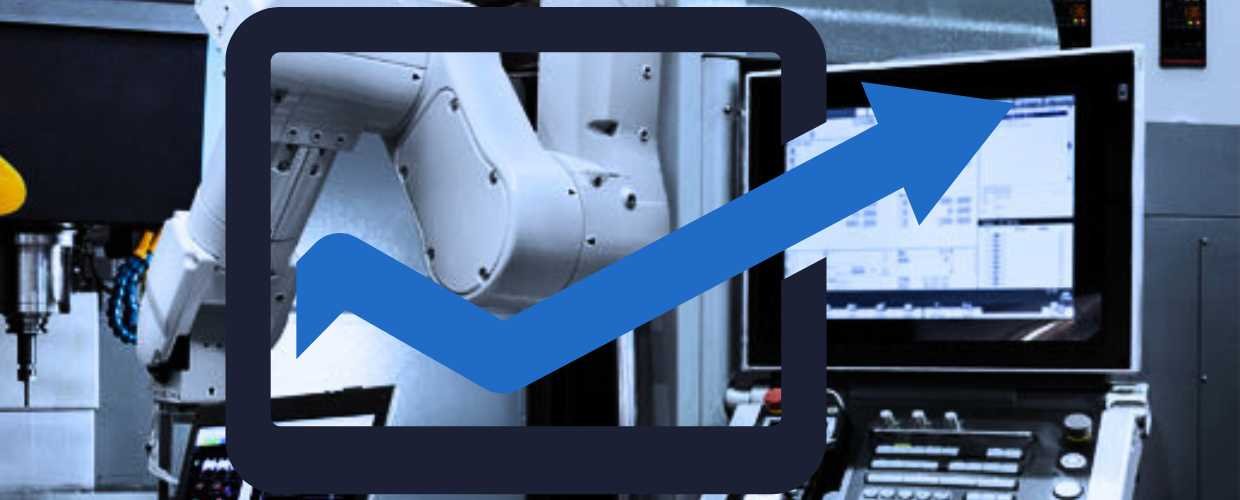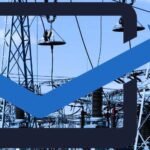In today’s digital era, industrial processes and automation are fundamental to the functioning of various industries, including manufacturing, energy, healthcare, and logistics. Industrial PCs (IPCs) have emerged as indispensable tools in these sectors, facilitating the integration of automation, control, and data analysis. The industrial PC market has grown as industries seek more robust, specialized computing solutions.
Industrial PC Market
The approximate decision of the Techgolly market research team is the global industrial PC market size was valued at least USD 10 billion in 2025 and is projected to reach up to USD 14 billion by 2030. The growth will continue at a compound annual growth rate (CAGR) of 5% to 7% from 2025 to 2030.

According to Future Market Insights, the global industrial PC market was valued at USD 5 billion in 2021 and is expected to reach USD 9.4 billion by 2032. Emergen Research said the global industrial PC market size was valued at USD 4.38 billion in 2021 and is projected to reach USD 7.11 billion by 2030.
Reasons for Market Growth
As industries continue to embrace automation, data-driven decision-making, and smart manufacturing principles, the demand for industrial PCs is expected to soar, contributing to enhanced efficiency and competitiveness. The primary reasons behind the growth of the industrial PC market are discussed below.
Rise of Industry 4.0 and Smart Manufacturing
The advent of Industry 4.0 and the drive towards smart manufacturing have fueled the demand for industrial PCs. These systems are at the heart of the industrial Internet of Things (IIoT), enabling data collection, analysis, and control for optimized processes.
Automation and Control
Industrial PCs are central controllers for automation and process control systems. They provide real-time monitoring and decision-making capabilities, enhancing operational efficiency and reducing human error.
Customization and Specialization
Industrial PCs are available in various form factors and configurations to meet the specific needs of industries. This customization enables IPCs to serve diverse applications, from ruggedized computers for harsh environments to compact systems for limited space.
Data Analysis and Visualization
Industrial PCs have powerful processors and graphics capabilities, making them ideal for data analysis and visualization tasks. They facilitate predictive maintenance, quality control, and real-time production monitoring.
Human-machine Interface (HMI)
IPCs are crucial for creating intuitive and user-friendly HMIs that enable operators to interact with machines and processes. These interfaces improve productivity and reduce training time.
Remote Monitoring and Control
With connectivity features, industrial PCs allow for remote monitoring and control of industrial processes. This capability is essential for industries with distributed operations and the need for centralized oversight.
Durability and Reliability
Industrial PCs are designed to withstand harsh operating conditions, including extreme temperatures, humidity, vibration, and dust. Their robust construction ensures continuous operation in demanding environments.
Compliance and Regulations
Industries such as healthcare, pharmaceuticals, and food manufacturing must adhere to strict regulatory standards. Industrial PCs with proper certifications and compliance features are essential for meeting these requirements.
Security and Cybersecurity
The increasing importance of cybersecurity has led to the demand for secure industrial computing solutions. Industrial PCs have security features to protect critical systems from cyber threats.
Energy Efficiency
Energy efficiency is a key concern for industries seeking to reduce operational costs and environmental impact. Industrial PCs are designed to be energy-efficient, helping organizations meet sustainability goals.
Globalization and Market Expansion
As businesses expand globally, they require standardized industrial computing solutions that can operate across different regions and markets. IPCs provide the necessary consistency and adaptability.
Emerging Technologies
Advancements in IPC technologies, such as edge computing and ruggedized systems, have expanded the scope of applications and industries that can benefit from industrial PCs.
Continuous Innovation
The industrial PC market is characterized by continuous innovation in hardware, software, and connectivity options. This ongoing development ensures that IPCs remain at the forefront of technological advancements.
Key Market Players
The major vendors offering industrial PCs are Siemens AG, Omron Corporation, Kontron AG, Beckhoff Automation GMBH & Co., Mitsubishi Electric Corporation, Advantech Co. Ltd., and Rockwell Automation.
Conclusion
The industrial PC market is poised for significant growth, driven by the rapid adoption of automation, data-driven decision-making, and the principles of Industry 4.0. Due to their versatility, reliability, and ability to meet the unique demands of various sectors, industrial PCs have become indispensable in modern industrial processes. From enabling smart manufacturing to ensuring compliance with stringent regulations, IPCs play a pivotal role in enhancing operational efficiency and competitiveness.
The rising importance of cybersecurity, energy efficiency, and emerging technologies like edge computing underscores the dynamic nature of the market. As globalization and market expansion continue, the demand for robust, specialized, and adaptable industrial PCs will grow, solidifying their role as the backbone of industrial automation and control systems.





